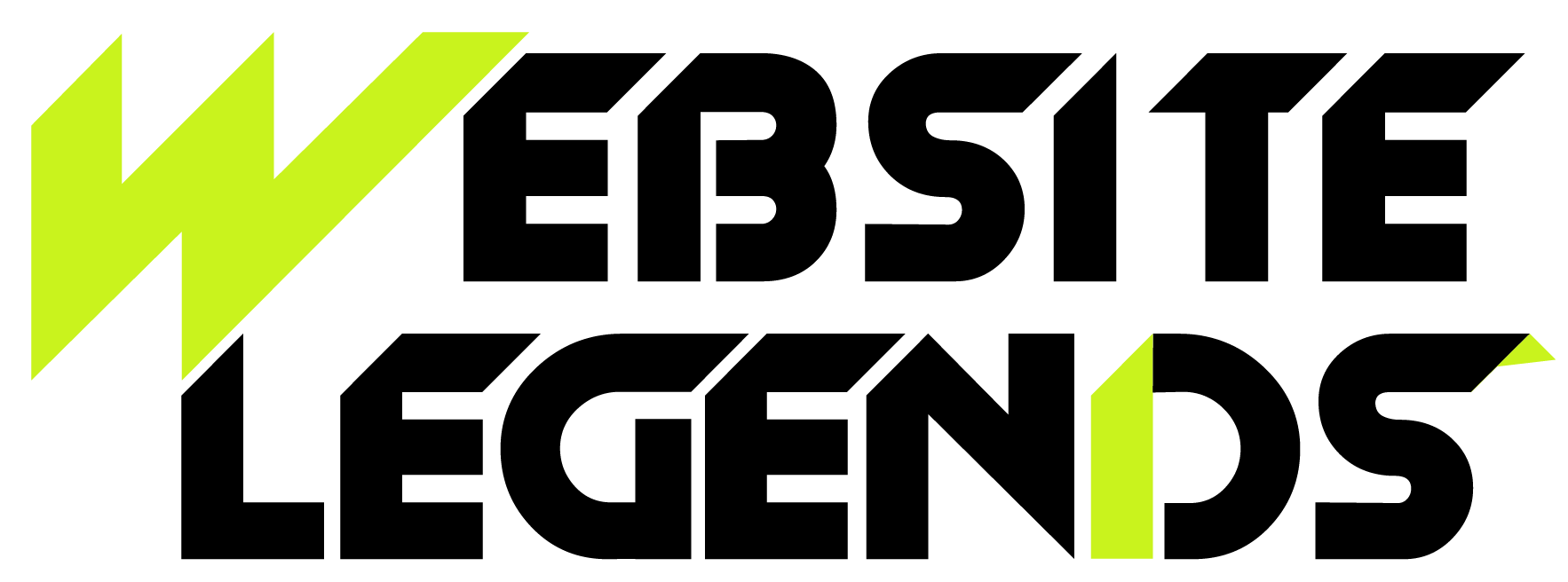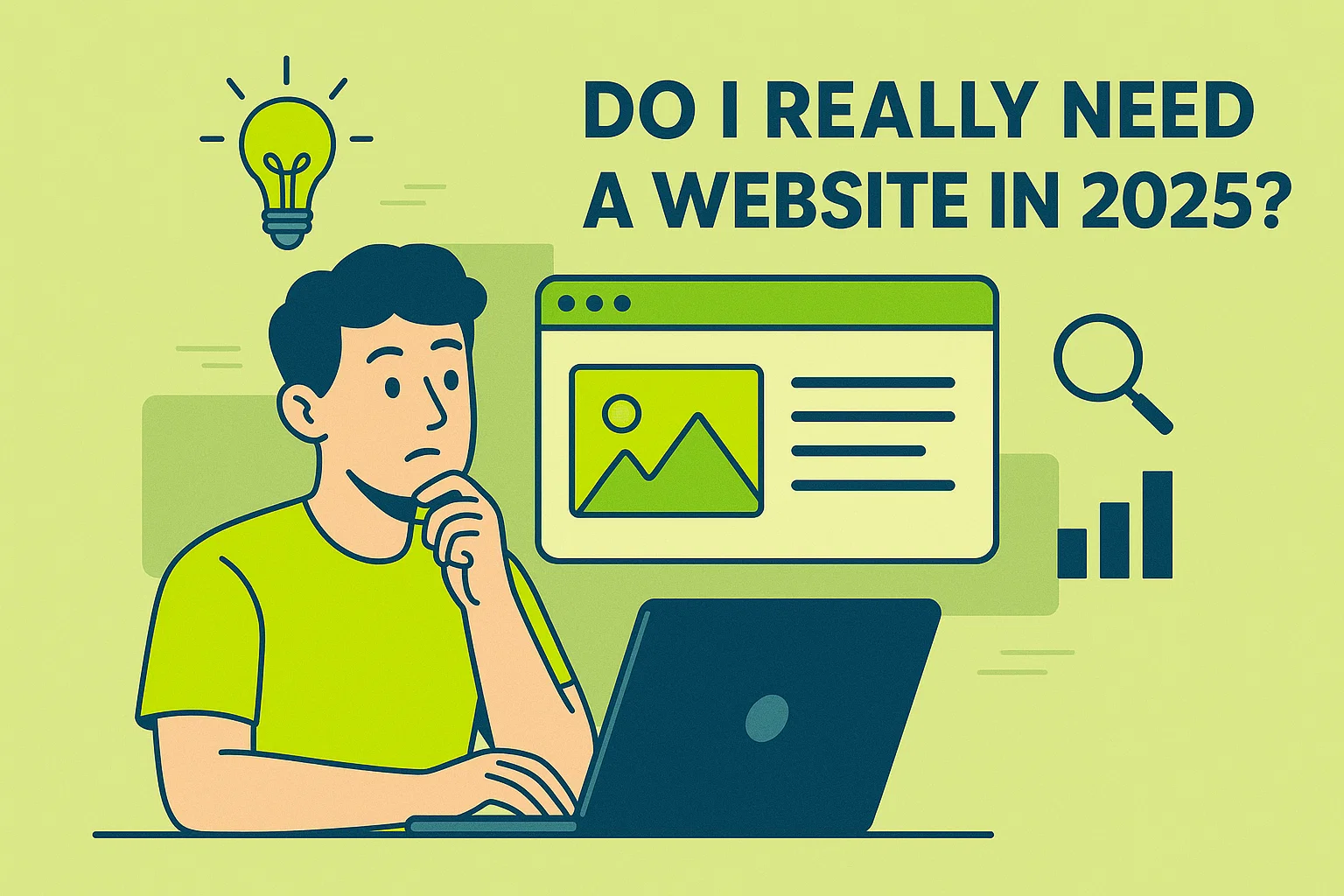Introduction
Let’s be honest — in 2025, many small business owners still ask the same question:
“Do I really need a website if I already have Facebook, Instagram, or TikTok?”
It’s a fair question. Social platforms seem to do everything — they let you promote, sell, and connect directly with customers. But here’s the truth: relying solely on social media is like renting space in someone else’s building — you’re not in control.
A professional website is still the cornerstone of digital success. It’s your permanent online home, the place where people trust you, buy from you, and remember your brand. In this article, we’ll break down why having a website in 2025 isn’t just important — it’s absolutely essential for small businesses that want to grow and stay relevant.
1. Your Website Is the Only Digital Space You Truly Own
Social media platforms are amazing for visibility, but they come with one huge drawback — you don’t own them.
Algorithms change. Reach drops. Features disappear overnight.
Your website, on the other hand, is your digital property — it doesn’t depend on trends or updates you can’t control.
When you have your own website:
-
You own your content, leads, and data.
-
No one can delete your page or limit your visibility.
-
You can build long-term SEO authority that compounds over time.
Think of it this way: social media is rented land, but your website is real estate you own forever.
2. Customers Expect Legitimate Businesses to Have a Website
In 2025, a missing website equals a missing reputation.
According to surveys, 84% of consumers believe a business with a website is more credible than one that only has social profiles.
When someone Googles your brand and finds no website, it immediately raises doubts:
-
Are they legitimate?
-
Are they still in business?
-
Can I trust them with my money?
Your website acts as your digital storefront, giving customers confidence to buy, contact, or visit you. Even a simple, one-page website builds trust and professionalism — something no Instagram bio can fully replace.
3. SEO Brings You Customers While You Sleep
Social media posts have a short life span — usually hours or days.
But a well-optimized website keeps working for you 24/7.
Through Search Engine Optimization (SEO), your website can appear in Google searches when potential customers are looking for exactly what you offer.
For example:
-
A bakery in Toronto can rank for “best birthday cakes in Toronto”.
-
A plumber in Melbourne can show up for “emergency plumbing near me.”
This means you’re not chasing customers — they’re finding you.
And here’s the best part: once your website starts ranking, that traffic keeps coming organically — no ad spend required.
4. Websites Convert Browsers into Buyers
Having traffic is one thing, converting it into customers is another.
A social media profile can attract interest, but it’s not built to convert.
A website, however, is designed with conversion in mind — using buttons, CTAs, testimonials, and service pages that guide visitors toward taking action.
Here’s how:
-
Contact Forms → Let visitors reach out instantly.
-
Online Booking/Checkout → Turn clicks into real sales.
-
Testimonials & Reviews → Build trust through social proof.
-
Lead Magnets (free guides, quotes, etc.) → Capture leads for future marketing.
Without a website, your marketing funnel is incomplete — you’re missing the final step where the sale happens.
5. It Makes Your Business Discoverable 24/7
A website is like having an employee that never sleeps. It answers questions, explains your services, and captures leads even when you’re offline.
Your website can:
-
Showcase your services, portfolio, or products.
-
Display business hours, address, and contact details.
-
Provide directions through Google Maps.
-
Collect inquiries or bookings while you’re asleep.
In short, your website works for you 24/7 — something social media alone can’t do.
6. You Control the Customer Experience
Platforms like Facebook or Instagram decide how your page looks and what content gets shown. A website, however, gives you total creative control.
You choose:
-
The design, colors, and layout that match your brand.
-
The message and story you want to tell.
-
How products and services are displayed.
You can even track exactly how people interact with your website using analytics.
That data helps you improve marketing, adjust pricing, and understand what your customers really want — something no social media platform fully reveals.
7. A Website Makes Advertising More Profitable
Running ads on social media or Google without a website is like shouting into the void. Where do your visitors go after clicking the ad?
A properly designed landing page converts ad clicks into leads or sales by offering clarity and trust.
When your ads point to a strong, conversion-optimized website:
-
Your ad ROI increases.
-
You capture more qualified leads.
-
You can retarget visitors using pixels and email campaigns.
So even if you invest in paid marketing, your website remains the anchor that turns ad spend into real business growth.
8. It Future-Proofs Your Business
The online world changes fast. Platforms come and go — but a well-built, mobile-responsive website keeps your business future-ready.
As AI, voice search, and automation grow, websites will play an even bigger role in discovery and transactions. Having a website ensures you can:
-
Integrate new tools and payment systems easily.
-
Adapt to search trends like voice optimization and local SEO.
-
Keep control of your online reputation.
Without a website, your brand risks being invisible in the next wave of digital evolution.
9. Websites Deliver the Highest ROI in Digital Marketing
Among all marketing tools — from ads to influencers — your website offers the best long-term ROI. Why?
Because once it’s built and optimized, it continues to attract and convert customers without ongoing costs.
Think of your website as a digital asset that appreciates in value over time, bringing in leads every day with minimal upkeep.
A one-time investment in a well-built site can bring years of results — unlike ad campaigns or social posts that disappear after a few days.
10. A Website Makes You Competitive — Even Locally
In 2025, customers search everything on Google before buying — even local products and services. If your competitors have websites and you don’t, you’re automatically losing potential customers.
When your website appears in local searches (like “near me” or “open now” queries), it puts your business right where customers are looking.
Combine this with Google Business Profile optimization, and your small business can outrank bigger brands in your area.
Conclusion:
So… do you really need a website in 2025?
Absolutely — more than ever before.
Your website isn’t just an online brochure; it’s the core of your digital ecosystem — your identity, your sales channel, and your growth engine. It builds credibility, attracts new customers, and keeps your business running 24/7.
If you’re serious about taking your business to the next level this year, investing in a professional website is not optional — it’s essential.
At Website Legends, we build high-performing, secure, and SEO-optimized websites that help small businesses grow fast. Whether you need a simple landing page or a full-scale e-commerce platform, we’ll craft a site that works as hard as you do.
FAQ Section
1. Do I still need a website if I already have social media pages?
Yes. Social media is great for awareness, but your website gives you ownership, control, and the ability to convert visitors into paying customers.
2. How much does a website cost for a small business in 2025?
It depends on your needs, but a professional small business website typically ranges from $800 to $5,000. At Website Legends, we tailor affordable solutions that deliver long-term ROI.
3. Will a website really help me get more customers?
Absolutely. Through SEO and optimized design, your website helps potential customers find you when they’re actively searching for your products or services.
4. Can I build a website myself?
You can use DIY platforms, but a professionally developed site ensures better design, SEO, and security — crucial for long-term business growth.
5. How long does it take to build a website?
Most small business websites can be completed in 2–4 weeks, depending on the complexity and features needed.


